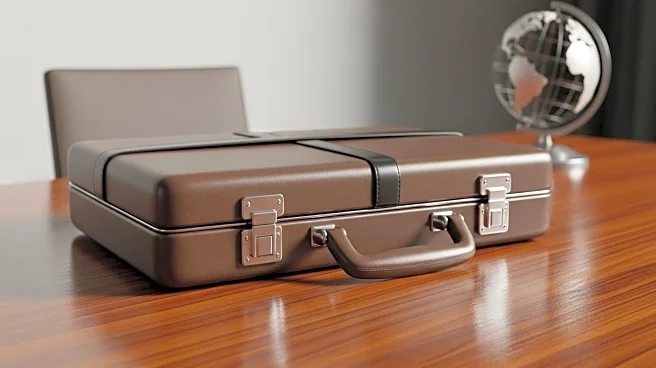What's Happening?
Chenyue Mao, an American banking executive with Wells Fargo, has been allowed to leave China after being subjected to an exit ban. The ban was lifted following discussions between U.S. and Chinese officials, coinciding with a potential meeting between President Trump and President Xi Jinping. Mao, a U.S. citizen born in China, was reportedly involved in a criminal investigation, though details remain unclear. The U.S. State Department has previously warned about China's use of exit bans, which have been a point of contention in U.S.-China relations.
Why It's Important?
Mao's release is significant as it reflects the complex diplomatic dynamics between the U.S. and China, particularly concerning the use of exit bans. These bans have been criticized for their arbitrary enforcement and impact on international business operations. The situation highlights the challenges faced by U.S. citizens and companies operating in China, potentially affecting future business strategies and diplomatic engagements. The resolution of Mao's case may also influence U.S. policy and diplomatic efforts to protect American citizens abroad.
What's Next?
The U.S. government may continue to address the issue of exit bans in diplomatic talks with China, seeking to prevent similar situations in the future. Companies may reassess their travel policies and risk management strategies when dealing with China. The outcome of Mao's case could also impact broader U.S.-China relations, particularly in the context of ongoing trade and political negotiations.









